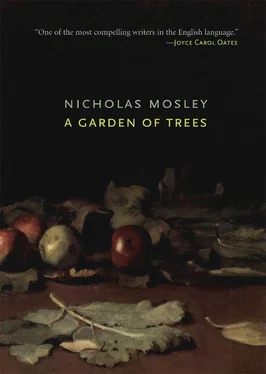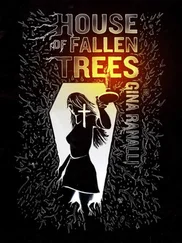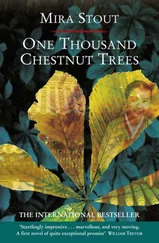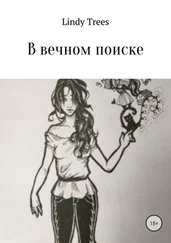“I thought he was a dustman.”
“He was a beggar,” Peter said. “He is selling shoe-strings. I asked him why he did not work and he said why should he? He was standing at the entrance to some fashionable club from which bachelors were emerging after their evening’s game of squash. Well, why should he?”
“Why do you call them shoe-strings?” Marius said.
“Because shoe-strings are what one tries to lift oneself up by when there is nothing else to lift with. No one bought his shoe-strings. Do you suppose it is possible to lift oneself up by one’s feet?”
“No,” Annabelle said.
“It is true that there is no reason to work. There is not even the reason of making money if one can get it by begging. He said he made ten pounds a week. I am sure if one tried hard enough one could lift oneself up by one’s feet.”
“Try it,” Annabelle said.
“I’m always trying it. I am a nonconformist. Sooner or later I shall do it or I shall break my back.”
“And what will you do when you have done it?” Marius said.
“I will be God. What more need I do? Those bachelors, now, why do they not try it instead of playing squash? It would be better exercise. Why does no one try it except me?”
“I knew you would be talking of the moon,” Annabelle said.
“No one is serious. I cannot bear that no one is serious. There is only one thing in life that is of any importance, and that is to get oneself off the ground. If there is nothing to lift you you must lift yourself. That is what I mean by shoe-strings. He realized that. He was a poetic beggar. He realized the enormous importance of doing nothing but dealing in shoe-strings. He is going home to-night to practise getting himself off his feet.”
“He will be wasting his time,” Annabelle said.
“Why?”
“Because he won’t know whether or not he has done it.”
“I knew a man,” Marius said, “who tied himself to a towel-rail.”
“When you try to lift yourself there is nothing to judge it by, you will end by pretending and not knowing that you pretend.”
“What happened to him?” I said.
“He was burnt,” Marius said.
“What is there to judge it by? Pretending is a disease, you do not know when you have got it. Does it matter so long as you try?”
“Disease can be cured.”
“How?”
“By other people.”
“Oh love, love, you are always talking about love. Will you cure me, Annabelle?”
“Yes,” Annabelle said.
Peter took off his shoes and socks and sat down on the parapet with his back to us so that his feet were in the water. He began to sing, and then stopped. He said: “The world is diseased, the disease is infectious, the infection is pretence. Should one not isolate oneself from infection? Everywhere there is madness. The people in the streets are no less mad than the people in palaces. The world must be changed or be renounced.”
“What do you remember?” Annabelle asked.
“Man must be changed or be destroyed. If he is not changed he must change himself. If he is not destroyed he will certainly destroy himself. I remember the future.”
“I remember the present,” Marius said.
“One day something will happen. We will get off the ground for a moment. It is only a moment that matters. Then we will be changed. It is the future that matters.”
“In the future,” Marius said, “we will break our backs and die.”
“There are four of us,” Peter said. “We will put strings under each other’s feet and pull. We will stand at the four corners of a circle and we will build a totem pole in the middle and the pole will have pulleys and we will raise ourselves. Is that what you call love?”
“Yes,” Annabelle said.
“You are right,” Peter said. “We must have a pole. The world has given up its totems, that is why it is on the ground. The world is too solitary. Will you tell us when our pole is built and we can pull?”
“If it were we who built it we still should not know where we were going.”
“You would,” I said.
“We still should not know what we were.”
“You would,” I said.
“We never know about ourselves.”
“A totem does not work unless a sacrifice is made to it,” Marius said.
“Then make a sacrifice,” Peter said. He looked to the sky. “One day I will jump off that roof and will either fly or be a sacrifice.”
“You know about yourselves,” I said.
“There are sacrifices in the present, always,” Marius said. “Then tell us when to honour them. The world must be changed. Annabelle, what do you judge things by?”
“By not judging,” she said.
“How do you know what you are without pretending?”
“By not knowing.”
“How do you know where you are going?”
“By believing.”
“And that is what you judge things by. Now, now, a star, and then it is you who we can believe in.”
“We are still children,” Annabelle said.
“Will you tell us when to begin?”
“Yes,” Annabelle said.
We all looked to the sky, but the stars had become veiled with clouds. It was as if we were alone on top of a mountain. Peter splashed, the water touched us, it might have been rain that fell upon us equally. I felt, suddenly, that I might have been any one of them. “I must go,” I said.
“Must you?” They looked at me.
“Yes,” I said.
“You will come back and see us?” Annabelle said.
“You will come back and stay?”
“I will come back soon,” I said.
“Good.”
I left them. I walked away hurriedly. I hoped that they would understand. I walked up flat rectangular streets without seeing anything. I had nowhere else to go and no one was expecting me, but I felt that if I had stayed with them much longer I should have either lost what I had found or else found something which at the moment would have been too great for me.
4
Emotion is not describable. The words have all been used, and they are tired. What I felt about Marius and Annabelle and Peter I thought was a new feeling, but I suppose it was really as old as the words with which I could not describe it. But every experience seems new to the person who experiences it, while the words are old to everyone. So the words can only explain.
When children are children they are either on their own or in company, but wherever they are they are not faced with the problem of solitude. To the child the problem is either unknown or it is an agony, and an agony cannot last for long. It is cured by unconsciousness or comforted by love, and there are a million mysteries by which its pain can be diverted. Children are never religious and they are never hypocrites, and religion and hypocrisy are two of the answers to the problem of solitude.
When children are no longer children they become conscious of solitude. Then, if there is love, it is all the answer that it was when they were children; but if there is no love, then there is fear, because unconsciousness has gone and mysteries have become fearful instead of diverting. Then the fight against solitude begins, and it may be fought by either denial or remedy. Denial is hypocrisy and remedy is faith. There can always be the attitude of not fighting it at all, but that becomes a descent into non-existence.
The world chooses denial because denial is easier. Denial is the easiest thing imaginable, because it does not even require imagination. And few people have imagination, so that hypocrisy begins.
Hypocrisy is pretending that you like people when you don’t, pretending that you are happy when you aren’t, pretending you are doing things for others when you are doing them for yourself, pretending that you are getting somewhere when you are going round in circles. Hypocrisy is living negatively and pretending that it is positive. Hypocrisy works because for a large number of people it is the only thing that can work, and something has to work or else people cannot believe that they exist. Hypocrisy is not wrong, it is just unlucky. It is unlucky because under its terms belief in existence remains only a surmise and not a reality. But it is necessary because some belief in existence is necessary, and an unreal belief fulfills at least the necessary functions of a real one. Belief in existence is automatic, it has to be; and for some reason belief in existence cannot be maintained without love or religion or hypocrisy. That is a condition of being human.
Читать дальше












